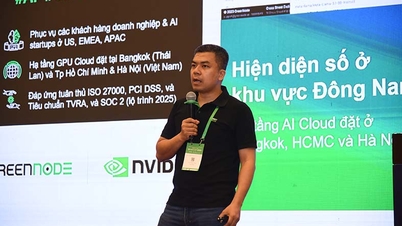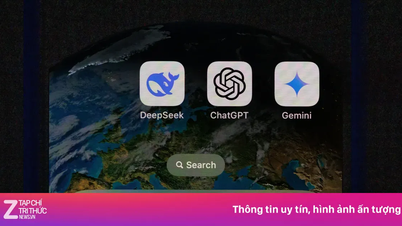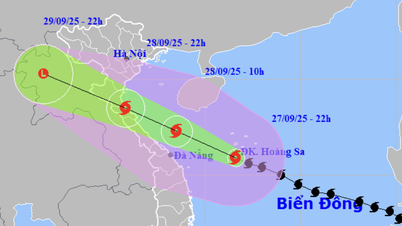
Why is AI more 'sensitive' to requests in English?
Conversational AI is supporting many languages, but English is still often considered an advantage because of its rich data base. Vietnamese users ask: are English responses more accurate and insightful, or is this gap gradually disappearing thanks to technological improvements?
The truth about AI being smarter when using English
Many users have noticed that when asking questions in English, the AI's answers are often more fluent and coherent than when using Vietnamese. From there, a widespread notion spread: just switching to English will make AI smarter.
In fact, this does not come from “bias” but from the training data. Famous models like OpenAI’s ChatGPT or Google’s Gemini are built on huge data stores, in which English is the dominant language. Research reports show that the majority of the source text comes from English books, newspapers, forums and websites, creating a very thick foundation for processing this language.
With other languages, including Vietnamese, the amount of data is less, so the accuracy and sophistication in expression are not quite equal. This is the reason why users feel that AI is smarter when chatting in English.
Multilingual capabilities and real-world testing
AI models today are no longer limited to English but have expanded to dozens of different languages. Vietnamese is in the group of languages that are quite well supported, enough for users to have daily conversations or quickly search for information. However, the level of proficiency still varies between languages.
AI is often better at processing common languages thanks to large amounts of training data. According to analysis from Microsoft, nearly half of the content used to train AI models today is still in English. This is the reason why users feel that when asking questions in English, the answers are often more coherent and detailed than in many other languages.
Real-world testing also shows this difference quite clearly. When users ask AI to write an academic analysis, research summary, or complex technical explanation, the English responses are often detailed, coherent, and close to the research style.
Meanwhile, if the same request is made in Vietnamese, the answer sometimes has translation errors or is not expressed naturally. However, with everyday questions, for example, asking about cooking recipes, tourist destinations or tips on using the phone, the difference is almost negligible.
Expert perspective and advice for users
AI developers all say they are expanding their data sources to narrow the gap between languages. This means that the quality of answers in Vietnamese will continue to improve. However, an equally important factor is how users ask questions. A clear query with context and specific keywords usually yields better results, regardless of language.
For in-depth learning or research needs, using English still helps maximize the model's capabilities, because the training data source is richer. Meanwhile, for everyday situations such as finding technology tips, recipes or entertainment recommendations, Vietnamese is enough for AI to respond naturally and easily.
Source: https://tuoitre.vn/ai-tra-loi-thong-minh-hon-khi-chat-bang-tieng-anh-20250822161513681.htm




![[Photo] Soldiers guard the fire and protect the forest](https://vphoto.vietnam.vn/thumb/1200x675/vietnam/resource/IMAGE/2025/9/27/7cab6a2afcf543558a98f4d87e9aaf95)































![[Photo] Prime Minister Pham Minh Chinh attends the 1st Hai Phong City Party Congress](https://vphoto.vietnam.vn/thumb/1200x675/vietnam/resource/IMAGE/2025/9/27/676f179ddf8c4b4c84b4cfc8f28a9550)




































































Comment (0)